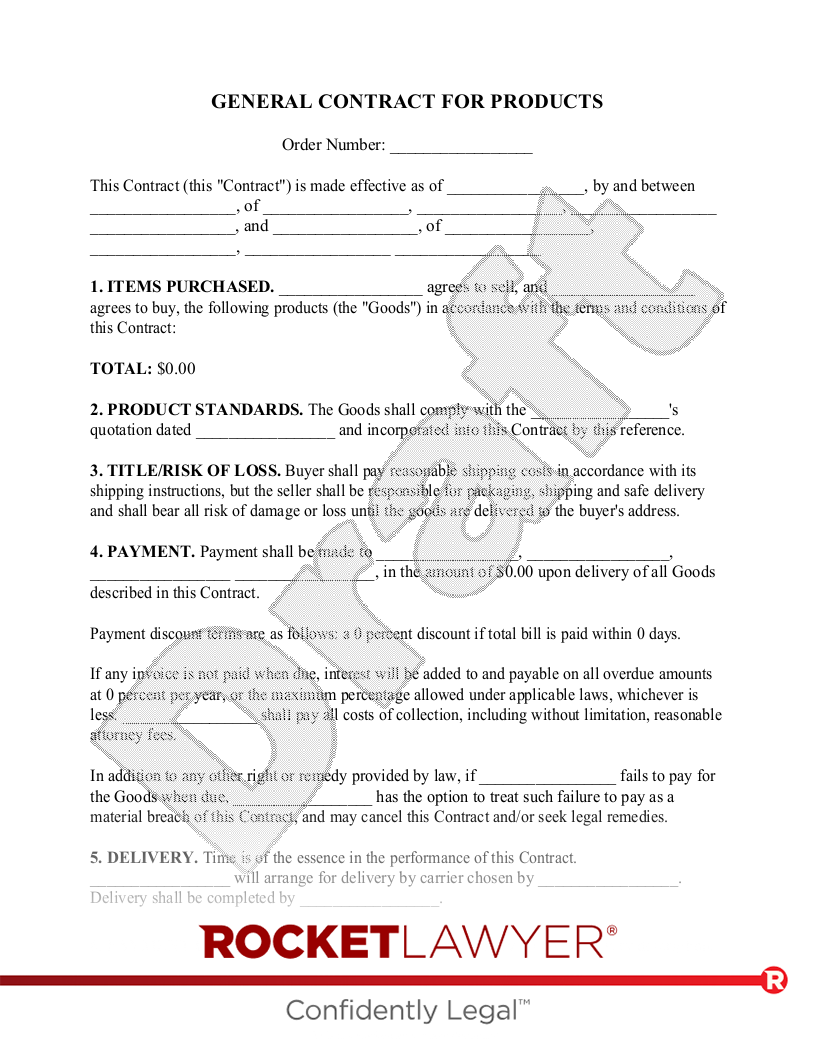What is a business contract and when might you need one?
A business contract is an agreement between two or more people or groups that creates a legal duty or responsibility. Think of a contract as the rules of a game: It gives everyone involved a clear definition of his or her end of the bargain and sets up parameters-with specific instructions-for the business relationship. All business contracts should include fundamentals such as:
- The date of the contract
- The names of all parties or entities involved
- Payment amounts and due dates
- Contract expiration dates
- Potential damages for breach of contract, missed deadlines or incomplete services
You might need to write a business contract any time goods, services, money or anything else is exchanged. All kinds of business relationships thrive on contracts, and entities involved might include individual people, companies, non-profit groups, corporations and organizations.
As an individual or small business owner, you might have a specific need for a business contract when:
- Entering a partnership or joint venture
- Buying or selling services or material items
- Selling or renting a home or other real estate
- Franchising
- Accepting work as an independent contractor or freelancer
- Hiring a contractor or servicer
In each of the above contexts, a business contract will allow all involved parties to describe obligations and establish responsibilities. A clear, concise document that explains everything expected of those involved can come in handy in a variety of situations. For example, imagine you're a landlord renting out an apartment. Having a clearly defined rental contract will give you and your tenant clear rules about what's expected for each side. The tenant knows that you'll maintain the unit, and you know he'll make monthly payments. Should something go sour, you both can rely on the original rental contract to protect you if end up with a dispute.
The basics for writing business contracts
We'll help you write your own business contract with our step-by-step instructions. But here's a primer for what'll be in there.
The first step in putting together a business contract is to establish the parameters or subjects of the deal to be exchanged. While the physical document is usually compiled by one party, a meeting or conversation between everyone involved offers a chance for all parties to contribute wants, needs and terms before signing.
This meeting might be a chance for the landlord in the above scenario to make specific rules for the tenant about how many people may live in the unit or if pets are allowed. The renter then could also make sure the landlord includes information about how and when rent is to be paid and what will happen if payment is late. When everyone has come to an agreement or exchanged information, it's time to put pen to paper and draft a business contract to explain all the details.
Remember, the contract will serve as the instruction book for your business relationship, and even the smallest details need to be included. If you want to make sure rent is paid in full by the first of each month, for instance, you need to expressly state that in the contract.
It's also not a bad thing to include an escape plan in your contract. Termination clauses are often included in business contracts to include information about what to do if either party needs to break the contract. Consider including a passage that explains how to end the deal or break the business relationship. If you're drafting an employment contract for a new hire, a termination clause might include information about how much notice is required should the employee decide to resign and how final compensation will work.
When all the factors included in the business contract have been discussed and an agreement has been reached, it might be wise to have a lawyer review the final document. He or she can ensure all local, state or federal laws have been measured in the contract and suggest areas to be covered relevant to your particular industry or organization. Then make the deal official by having each party sign and date the document.
Business contracts are unavoidable in today's marketplace. Keeping yourself well-informed about the basics can help you be confident no matter whether you're writing or signing a business contract.
Please note: This page offers general legal information, not but not legal advice tailored for your specific legal situation. Rocket Lawyer Incorporated isn't a law firm or a substitute for one. For further information on this topic, you can Ask a Legal Pro.
